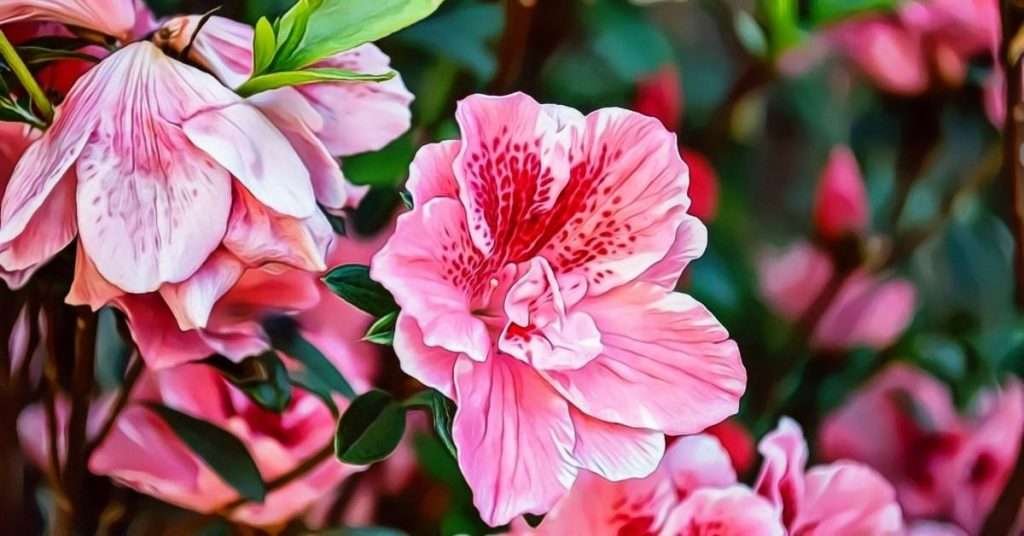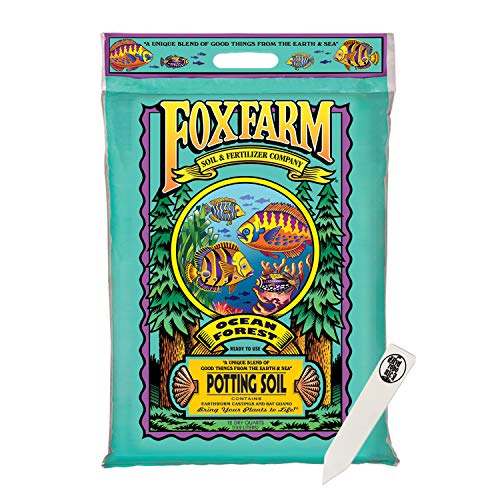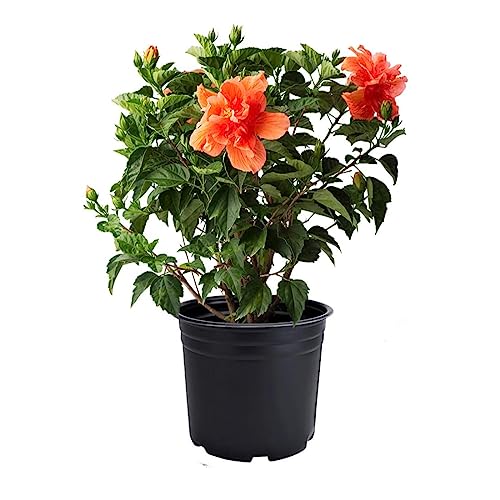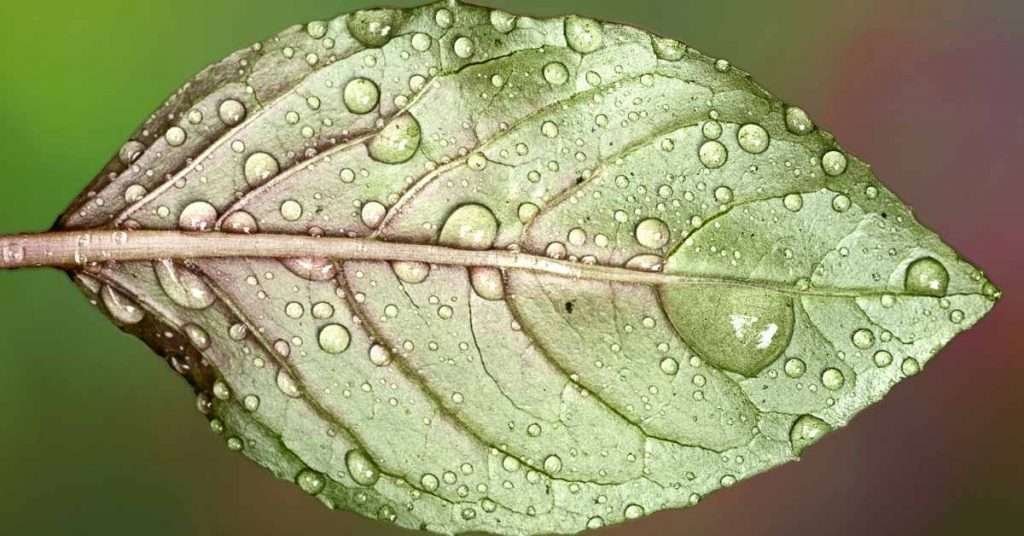Soil is an integral part of a hibiscus garden. The type of soil will affect the growth and health of the Hibiscus, so it is essential to choose the suitable soil for your Hibiscus.
However, this tropical plant prefers warm, moist soil to grow well. Keep in mind the type of soil for Hibiscus directly impacts the growth of your beautiful plant.
In this guide, we will talk about the Hibiscus soil requirements and the type of soil Hibiscus prefers.
Composition Of The Soil

“As an Amazon Associate, I earn from qualifying purchases.”
The soil is a mixture of minerals, organic matter, air, and water. The proportions of these ingredients determine the soil’s physical and chemical properties. Soil texture is determined by the size of the mineral particles that make up the soil.
Sand, silty loam, and clay are the three main textural classes of soils. Soil pH is a measure of how acidic or alkaline the soil is. Soil fertility measures how much plant-available nutrients are in the soil.
Soil pH for Growing Hibiscus
The soil’s pH level is vital for the healthy growth of Hibiscus plants. The optimal pH range is between 6 and 7. If the pH level is too low, the plant will not be able to take up nutrients from the soil; if it is too high, it may become chlorotic.
Types Of Soil For Hibiscus: Sandy, Loamy, or Clayey?

When it comes to planting Hibiscus, the type of soil you have is very important. So let’s see in detail what soil to opt for while planting Hibiscus.
Sandy Soil for Hibiscus
Sandy soil comprises small, angular particles that are finely divided or have a smooth surface. Sandy soil has very little organic matter and is usually found near the coast. It is easy to dry out and very difficult to maintain because it doesn’t hold water well.
Is Sandy Soil Good for Growing Hibiscus?
If you have sandy soil, you can grow a variety of plants. Sandy soil is good for plants that need that have tough roots. However, you can make your sandy soil nutrient-rich by adding organic matter. Hibiscus needs a lot of water to grow well so sandy soil can be a great type of soil for them.
Related: Hibiscus Care
Loamy Soil for Hibiscus
Loamy soil is a type of soil that is made up of a mixture of sand, silt, and clay. It is most commonly found in areas that have been disturbed by humans, such as farmland and urban areas. Loamy soil has a soft, spongy texture and a low water retention capacity. This makes it susceptible to flooding during heavy rainstorms.
Loamy soils are typically brown due to the presence of earthworms and other organisms that create organic matter. They can be distinguished from sandy soils by their tendency to form mounds and lumps rather than be uniform in texture.
Is Loamy Soil Good for Growing Hibiscus?
Loamy soil is best suited for plants that like lots of water and nutrients, such as tomatoes, eggplant, peppers, and roses. You don’t need to add a lot of organic matter to make loamy soil; make sure the base layer contains some sand and clay. Loam soil can be another excellent option for growing Hibiscus due to its acidic nature.
Clayey Soil for Hibiscus
Clayey soil can be dark brown, black, or very light in color and consists of many small, fine particles. It has a sticky feel when wet and can be challenging to work with because it tends to hold onto water. Clayey soil is often found near water sources or in areas that have been wet for a long time.
Is Clayey Soil Good for Growing Hibiscus?
Clayey soil is a type of soil that is not recommended for growing plants. Clayey soil has a high percentage of clay particles, a mineral that helps to hold water and could result in water logging. This prevents plants from getting the nutrients they need to survive.
What Type Of Soil For Hibiscus Is Best?
Hibiscus requires well-drained soil with a high fertility level. They grow best in acidic, moist soils and have a pH of 6.0-6.8. Some soils that are good for Hibiscus include sandy and loamy soils.
- Ultimate potting soil that has everything your plants need in one bag
- Ocean Forest is pH adjusted at 6.3 to 6.8 to allow for optimum fertilizer uptake
- Ocean Forest has a light, aerated texture that's perfect for indoor and outdoor plants
- Designed for containers and ready to use right out of the bag
- The date imprinted on the bag signifies the product's manufacturing date
Improving Soil For Hibiscus
There are many ways to improve the soil for Hibiscus, depending on the climate, location, and type of Hibiscus. For most kinds of Hibiscus, a well-drained soil that is slightly acidic to neutral is best. Below are some ways to improve the soil for Hibiscus.
1. Till the soil to a depth of at least 6 inches.
2. Add organic matter, such as compost or aged manure.
3. Apply a balanced fertilizer with high nitrogen and phosphorus levels.
4. Water well and allow the soil to dry out before watering again.
However, adding shrubs or trees to your garden can help shade the plants and create a more filtered environment, which is also beneficial for improving air circulation and reducing moisture stress in the soil.
Related: Hibiscus Symbolism
FAQs
Now we will be answering frequently asked questions about Hibiscus soil requirements and what type of soil for Hibiscus is best.
How to Help My Hibiscus Grow?
There are many ways to help your Hibiscus grow. One way is to provide good soil conditions. Hibiscus prefers well-drained soil rich in organic matter and has a pH of 6.5 to 7.0. You can also water your Hibiscus regularly, fertilize it occasionally with a balanced fertilizer, and prune it back if it becomes overgrown or invasive.
Will Hibiscus Grow in Sandy Soil?
Hibiscus is known for its beautiful flowers and growing in many parts of the world. Because of this, it can be challenging to tell whether Hibiscus will grow well in a particular soil type. Hibiscus does best in acidic soils with good drainage but will also grow in sandy soils. When growing Hibiscus, be sure to provide plenty of water and nutrients so the plant can thrive.
Is Hibiscus An Outdoor Plant?
Hibiscus is a tropical plant that requires warm weather to thrive. It can be grown outdoors in zones 9-11 but will not tolerate cold temperatures. Hibiscus needs well-drained soil with ample sunlight and regular watering. Mulch the plants in the winter to keep them warm and protect them from frost.
Is Cactus Soil Good for Hibiscus?
Hibiscus is a beautiful flower that needs good soil to grow. Different types of soil are suitable for other plants, so it’s important to know what kind of soil Hibiscus needs. Hibiscus prefers well-drained soils with plenty of organic matter. They are also tolerant of high levels of salt and alkali, making cactus soil a good choice for them.
Key takeaways
In conclusion, to ensure your Hibiscus thrive, it is essential to use soil specifically designed for their needs. By following these guidelines and keeping in mind what type of soil for Hibiscus works great, you can be sure to provide your plants with the best possible growing conditions and enjoy their vibrant blooms for years to come.
- Hibiscus Plant Pot: Double Peach Hibiscus, native to Asia, is a beautiful, shrubby plant with dark green leaves that blooms with exotic, peach-colored flowers constantly. While the flowers can be up to 6” in diameter, each blossom lasts only 1 day.
- Indoor Plants: Hibiscus plants can be grown alone, as hedge plants, or in containers. Attractive to hummingbirds and butterflies, the plants are ideal for inviting wildlife into your living space. The USDA hardiness zone for outdoor planting is 9–11.
- Easy Maintenance: Hibiscus plants are easy to care for; they thrive in full sunlight, with the ideal temperature being 60–90° F. A heat pack is included with each plant if your region experiences cold weather.
- Home and Garden Decor: An ideal indoor plant, our Hibiscus plant pot is perfect for windowsills, countertops, desks, and tables in your home or garden. The plant can grow up to 15' tall and is a great gift option for friends and family.
- Health Benefits: Live plants purify the air in their surroundings and thus enable you to inhale clean, fresh air while also helping to boost mood levels. The plant is safe for both humans and pets.








